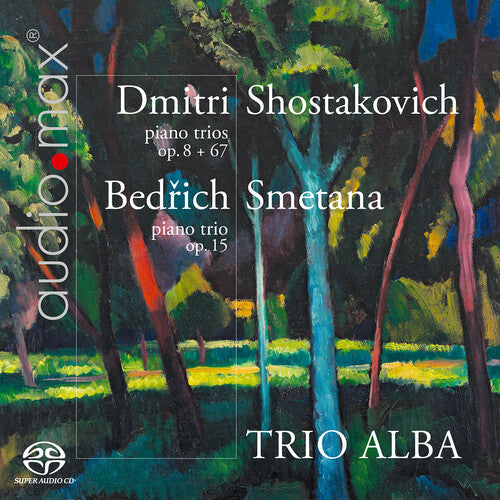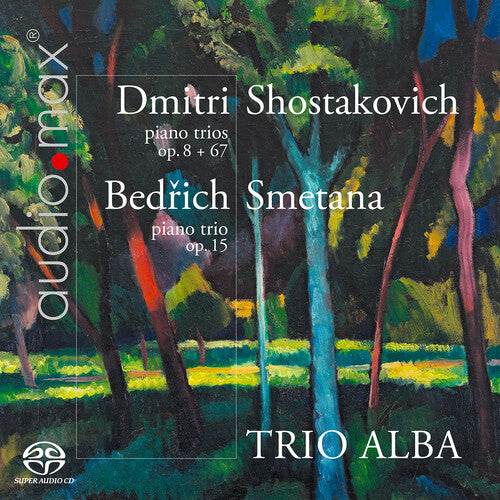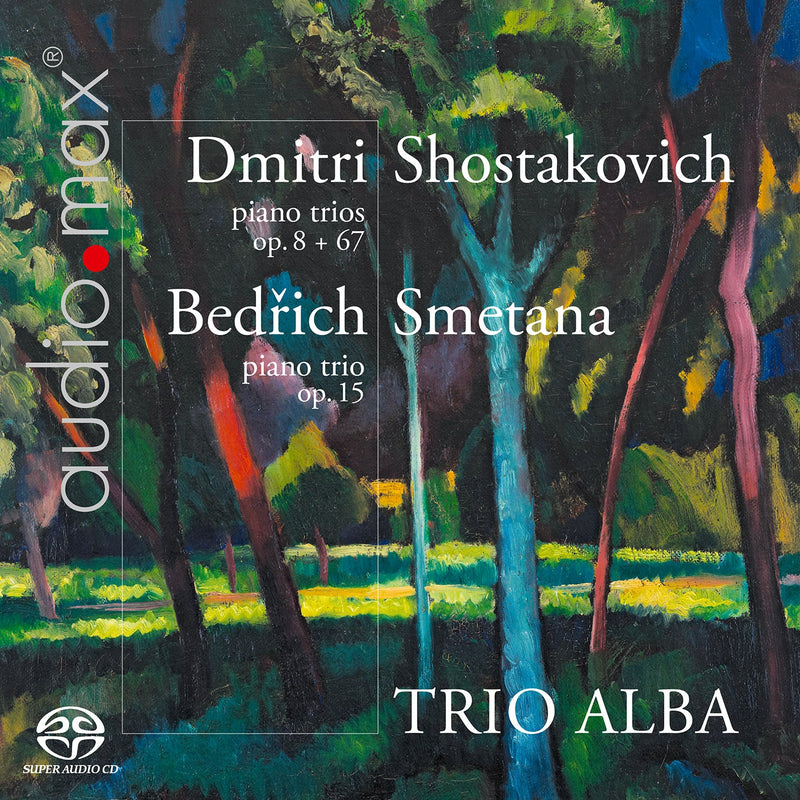Bedřich Smetana
84 products
-
 {# optional: put hover video/second image here positioned absolute; inset:0 #}
Audiomax
{# optional: put hover video/second image here positioned absolute; inset:0 #}
AudiomaxShostakovich: Trios opp. 8 & 67 - Smetana: Trio op. 15 / Trio Alba
Dmitri Shostakovich was only 17 years old when he completed his piano studies in Petrograd. In the same year he published his...
-
 {# optional: put hover video/second image here positioned absolute; inset:0 #}
{# optional: put hover video/second image here positioned absolute; inset:0 #}
-
 {# optional: put hover video/second image here positioned absolute; inset:0 #}
Supraphon
{# optional: put hover video/second image here positioned absolute; inset:0 #}
SupraphonSmetana: String Quartets No 1 & 2 / Pavel Haas Quartet
In their native repertoire they are well nigh incomparable. I have not heard an account of “From My Life” that prepares us...
-
 {# optional: put hover video/second image here positioned absolute; inset:0 #}
{# optional: put hover video/second image here positioned absolute; inset:0 #}
-
 {# optional: put hover video/second image here positioned absolute; inset:0 #}
On Sale
{# optional: put hover video/second image here positioned absolute; inset:0 #}
On Sale -
 {# optional: put hover video/second image here positioned absolute; inset:0 #}
{# optional: put hover video/second image here positioned absolute; inset:0 #}
-
 {# optional: put hover video/second image here positioned absolute; inset:0 #}
On Sale
{# optional: put hover video/second image here positioned absolute; inset:0 #}
On Sale -
 {# optional: put hover video/second image here positioned absolute; inset:0 #}
On Sale
{# optional: put hover video/second image here positioned absolute; inset:0 #}
On Sale -
 {# optional: put hover video/second image here positioned absolute; inset:0 #}
On SaleSony Masterworks
{# optional: put hover video/second image here positioned absolute; inset:0 #}
On SaleSony MasterworksBernstein Century - Dvorak, Goldmark, Humperdinck, Smetana
Bernstein's tendency to program and record pieces that were his favorites may benefit us all. This recording brings together Bernstein performances of...




 {# optional: put hover video/second image here positioned absolute; inset:0 #}
{# optional: put hover video/second image here positioned absolute; inset:0 #}


 {# optional: put hover video/second image here positioned absolute; inset:0 #}
{# optional: put hover video/second image here positioned absolute; inset:0 #}



 {# optional: put hover video/second image here positioned absolute; inset:0 #}
{# optional: put hover video/second image here positioned absolute; inset:0 #}

 {# optional: put hover video/second image here positioned absolute; inset:0 #}
{# optional: put hover video/second image here positioned absolute; inset:0 #}

 {# optional: put hover video/second image here positioned absolute; inset:0 #}
{# optional: put hover video/second image here positioned absolute; inset:0 #}


 {# optional: put hover video/second image here positioned absolute; inset:0 #}
{# optional: put hover video/second image here positioned absolute; inset:0 #}


 {# optional: put hover video/second image here positioned absolute; inset:0 #}
{# optional: put hover video/second image here positioned absolute; inset:0 #}

 {# optional: put hover video/second image here positioned absolute; inset:0 #}
{# optional: put hover video/second image here positioned absolute; inset:0 #}

 {# optional: put hover video/second image here positioned absolute; inset:0 #}
{# optional: put hover video/second image here positioned absolute; inset:0 #}